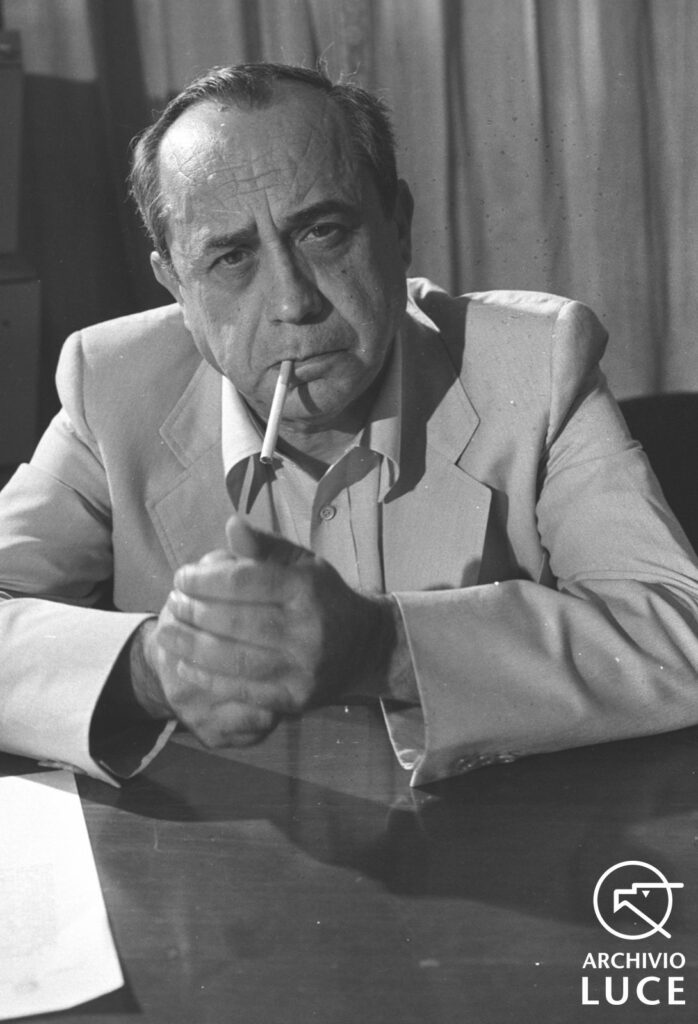
Leonardo Sciascia (1921-1989) was an Italian writer, journalist, and politician, known for his works that often explore themes of power, corruption, and the moral complexities within Italian society, particularly in his native Sicily. His literary work spans novels, essays, and plays, and he is recognized for his sharp, critical style and deep engagement with social and political issues.
Key Aspects of Sciascia’s Life and Work:
Early Life:
- Birth and Education: Born on January 8, 1921, in Racalmuto, a small town in Sicily, Sciascia grew up in a region steeped in traditional values but also marked by economic hardship and social injustice.
- Career Beginnings: Initially, Sciascia worked as a schoolteacher. His early experiences and observations in Sicily greatly influenced his literary themes.
Literary Career:
- Notable Works:
- “The Day of the Owl” (“Il giorno della civetta”, 1961): A seminal novel exploring the Mafia’s infiltration into everyday life and the challenges faced by those who oppose it. It’s a critical look at the complicity and corruption within society and the state.
- “Equal Danger” (“Il contesto”, 1971): A political thriller that delves into the complexities and ironies of power and justice, reflecting Sciascia’s skepticism towards political institutions.
- “The Moro Affair” (“L’affaire Moro”, 1978): An investigative essay about the kidnapping and murder of Italian Prime Minister Aldo Moro by the Red Brigades, showcasing Sciascia’s keen eye for political analysis and his ability to critique the state’s response to terrorism.
- “To Each His Own” (“A ciascuno il suo”, 1966): A mystery novel that reveals the underlying social and political tensions in a small Sicilian town.
Themes and Style:
- Anti-Mafia and Anti-Corruption: Sciascia’s works frequently expose the pervasive influence of the Mafia in Sicilian and Italian life, highlighting the courage and often the futility of those who resist.
- Moral Ambiguity: He often portrayed the complexities and contradictions in human behavior and societal norms, avoiding clear-cut moral judgments.
- Political Critique: His works are imbued with a strong sense of political awareness, critiquing not only the Mafia but also the broader political and judicial systems.
Political Involvement:
- Parliamentary Career: In the 1970s and 1980s, Sciascia was elected to the Italian Parliament. His tenure was marked by his continued critique of corruption and the Mafia, both through his political work and his writing.
Legacy:
- Impact on Italian Literature: Sciascia is considered one of Italy’s most important 20th-century writers. His works have been widely translated and continue to be studied for their incisive social and political commentary.
- Continued Relevance: His exploration of themes like justice, power, and morality remain relevant, resonating with contemporary readers and scholars.
Conclusion:
Leonardo Sciascia’s legacy lies in his fearless examination of the darker sides of Italian society, his commitment to justice, and his skill in weaving these themes into compelling literary works. His contributions extend beyond literature into the realm of political thought and activism, making him a pivotal figure in both Italian culture and history.
Bestselling Books by Leonardo Sciascia























